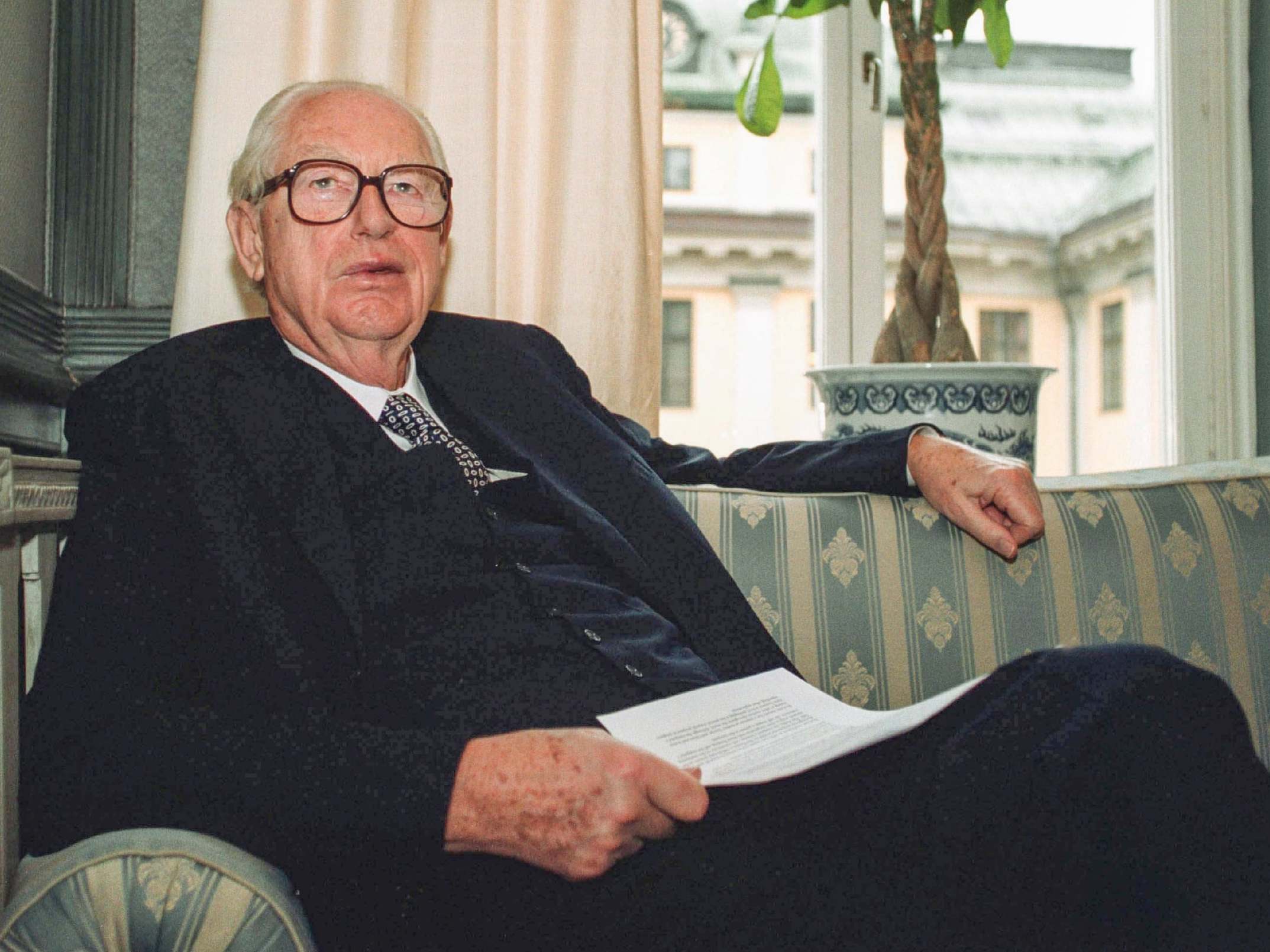Hans Rausing: Head of the Tetra Pak empire and one of the UK’s wealthiest people
At one point richer than the Queen, Rausing devoted much of his energy to charitable giving

Your support helps us to tell the story
From reproductive rights to climate change to Big Tech, The Independent is on the ground when the story is developing. Whether it's investigating the financials of Elon Musk's pro-Trump PAC or producing our latest documentary, 'The A Word', which shines a light on the American women fighting for reproductive rights, we know how important it is to parse out the facts from the messaging.
At such a critical moment in US history, we need reporters on the ground. Your donation allows us to keep sending journalists to speak to both sides of the story.
The Independent is trusted by Americans across the entire political spectrum. And unlike many other quality news outlets, we choose not to lock Americans out of our reporting and analysis with paywalls. We believe quality journalism should be available to everyone, paid for by those who can afford it.
Your support makes all the difference.Hans Rausing, who has died aged 93, was a billionaire heir to the dynasty of Tetra Laval, the manufacturer of Tetra Pak cartons used in their millions around the world every day for milk and fruit juice. With a fortune of around £10bn, the Rausing family was one of the UK’s richest.
He was born in 1926 in Gothenburg, Sweden, and educated at Lund Cathedral School and Lund University, where he read economics, statistics and Russian. His father, Ruben Rausing, patented the first tetrahedron-shaped container for liquids in 1944, a design that was used initially for milk. Ruben had been watching his wife making sausages in the kitchen when the idea for the innovative packaging struck him.
Hans Rausing took over as chief executive of the company a decade later and drove the development of the familiar rectangular-shaped “Tetra Brik”. This was launched in 1963 and soon became the industry standard container for many liquid food products. Although these were popular in their home country, the considerable investment in development and equipment meant that the company struggled financially until the late 1960s, when its “Tetra Brik Aseptic” packaging took off worldwide. Under Rausing’s leadership the company went from just six employees to 36,000.
Hans and his older brother, Gad, moved to Britain in the early 1980s to avoid Swedish taxes. Hans bought the 900-acre Wadhurst Park estate in East Sussex and built amongst the existing buildings a distinctive single-storey house, designed by the architect John Outram. Just over a decade later the pair topped the Sunday Times Rich List of 1993, ahead of the Queen.
Rausing resigned as chief executive and sold his share of the company to his brother’s Tetra Laval group in 1995, for around £4.5bn. He and his wife Marit focussed their energies on charitable projects, funding medical research at his alma mater, Lund University, and the Caroline Institute in Stockholm. Rausing’s children have followed in their parents’ footsteps in charitable activity: Sigrid Rausing is the owner of the publisher Granta and a supporter of Amnesty and Human Rights Watch; and Lisbet Rausing is a senior research fellow at King’s College, Cambridge, and runs the Arcadia Fund with her husband, Professor Peter Baldwin.
Although a private man in both his business and personal life, Rausing did agree to take part in a Swedish television documentary about his life and work. In a rare interview, with the Daily Mirror in 2001, he confessed: “I am not a professional money man. I am an industrialist. I understand machinery. I understand things. I do not understand money. I have no idea how much money I have.”
He added: “I had always felt perfectly happy even without money. But you feel more happy with money than without. Life itself gives me most pleasure.”
Tragedy hit the family in 2012 when Rausing’s daughter-in-law, Eva Rausing, was found dead at her home in Belgravia, London. His son Hans Kristian had been arrested for suspected drug possession and it subsequently emerged that Eva’s body had lain in the house, wrapped in a tarpaulin, for two months after her death. Hans Kristian was charged with preventing the lawful and decent burial of a body, for which he received a suspended sentence.
Hans Kristian and his second wife have since devoted their time and money to the Julia and Hans Rausing Trust. The trust has so far given more than £200m to various causes, including help for people affected by drug addiction.
Rausing is survived by his wife and three children.
Hans Rausing, businessman and philanthropist, born 25 March 1926, died 30 August 2019
Join our commenting forum
Join thought-provoking conversations, follow other Independent readers and see their replies
Comments